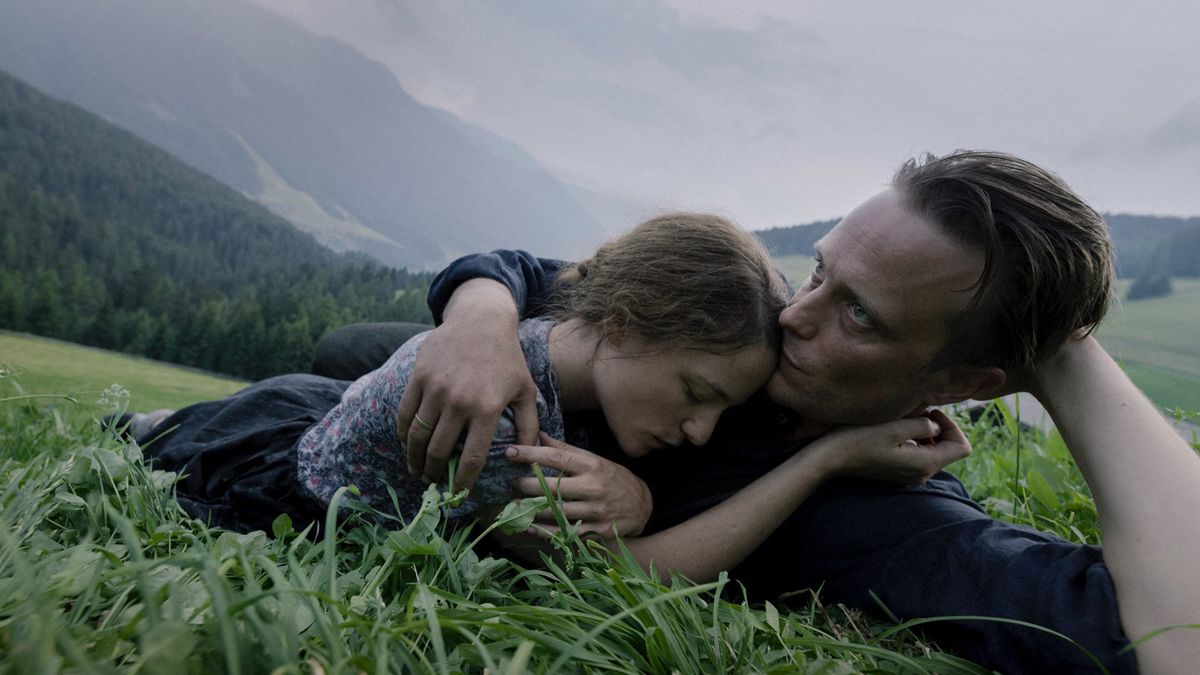After exploring the experimental edges of narratively formless cinema with films like Song to Song and Knight of Cups, director Terrence Malick returns with his newest film: a meditation on morality that, both intimate and expansive, achieves wondrous results.
In this corporately competitive and politically combative era of 2019, it feels as if having personal ethics – compared to those untethered by having any self-imposed restrictions – is something of a weakness. If it’s beliefs that hold you back from following wherever the ethically-compromised yardstick has been moved to, and if unethical practices then persist as a result, one must wonder: at what cost are those pesky little ethics truly worth?
It’s a tragically philosophical question that has plagued countless men over time, and as a result, caused them to fall nameless to history over their actions (and inactions). It’s also a meditation that director Terrence Malick beautifully ponders, celebrates, and examines in his wondrously magnificent new film, A Hidden Life, in theaters this Friday.
Those familiar with Malick will know what his films have in store: melancholic humans searching for life’s answers in stories that range in vastness and ambition. At 2 hours and 53 minutes long, A Hidden Life ranks among his more ambitious works, and I’m happy to say that it’s every bit as epic in its narrative and artistic scope.
What makes this meditation so transfixing is its setting and place in time: based on a true story of a German conscientious objector in WWII, A Hidden Life centers around the life of Franz Jägerstätter (August Diehl), a German villager and husband to Franziska (Valerie Pachner). It’s a life that we see is full of infinite, simple beauties; they cut wheat in the most amazing golden fields, spin around vibrant green grass, and stare longingly into each other’s eyes under the rich blue skies. Children soon form to show a happy family. But when the creeping subsiding of war slowly moves in like waves reaching higher tides, Franz is forced to assert an ethical stance that soon enough tears him apart from his family.
With a camera that gracefully glides through scenes, seeking and capturing spontaneous moments of Diehl and Pachner’s quiet emoting and performing, Malick’s distinguishable cinematography is on welcome display here. And assembled with its jump-cut editing, A Hidden Life feels like a film that’s simultaneously unfurling in real-time as well as if remembered like a trace-memory, altogether an impressionistic tapestry of real feeling that cannot be imitated. Mixing this modernized look with its period-accurate era captures a timeless quality to the nature of ethics that gives it new life and resonance.
While Malick’s latest experimental adventures (Song to Song, Knight of Cups) didn’t tap into the cultural conversation for their understandably formless structures, A Hidden Life is bolstered by having a narrative center that organically moves the film forward, which is a welcomed element. Putting forward a meditation on such a universally important question as morality and inspiring people to ponder it is an ambitious, if not just plain admirable, task. The artistic achievement that is A Hidden Life is one that – like the devastatingly moving quote by George Eliot that the film ends with – should be seen and celebrated.
A HIDDEN LIFE (2019)
Starring August Diehl, Valerie Pachner, Matthias Schoenaerts
Directed by Terrence Malick
Written by Terrence Malick
Distributed by Fox Searchlight. 174 minutes.
Opening this Friday at ArcLight Hollywood and The Landmark.
Ryan Rojas
Ryan is the editorial manager of Cinemacy, which he co-runs with his older sister, Morgan. Ryan is a member of the Hollywood Critics Association. Ryan's favorite films include 2001: A Space Odyssey, The Social Network, and The Master.

